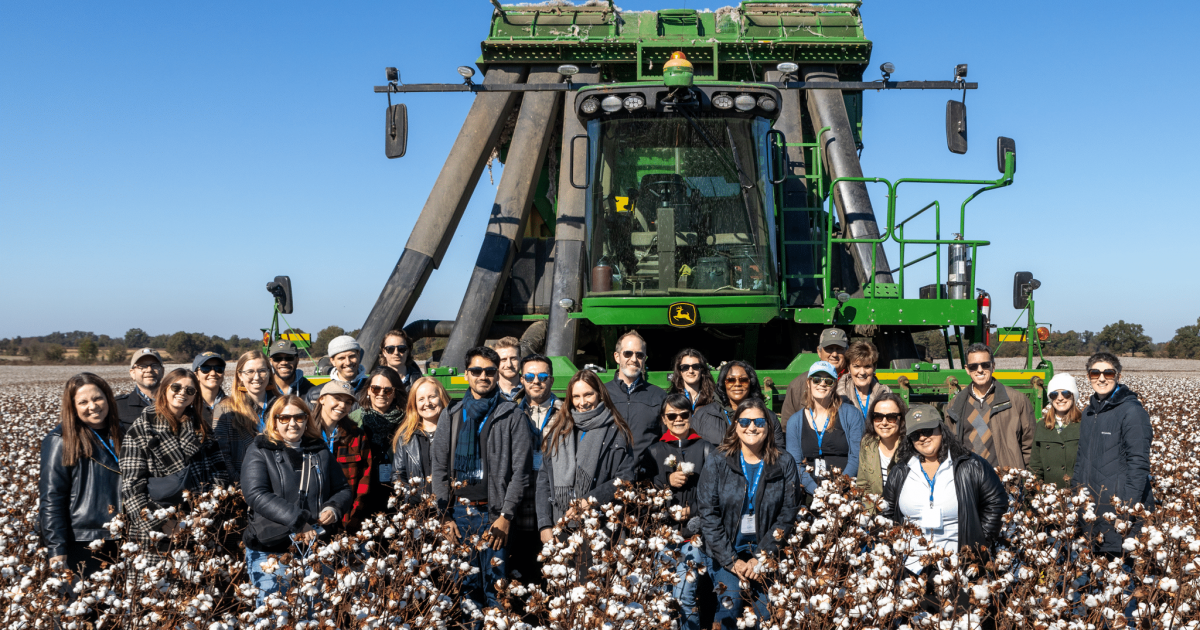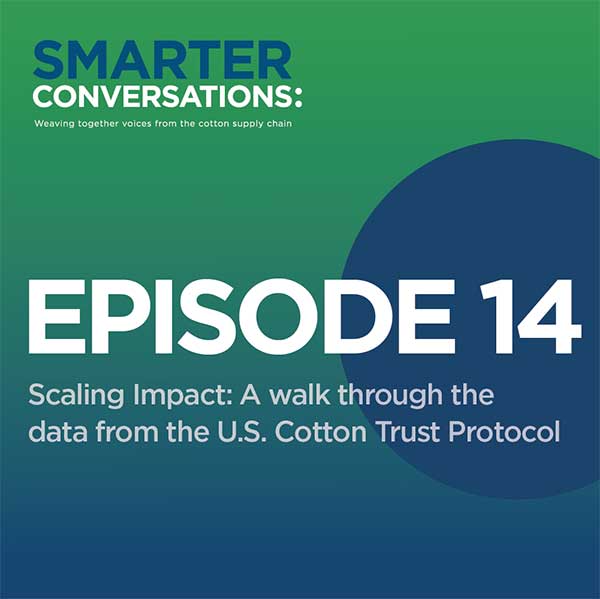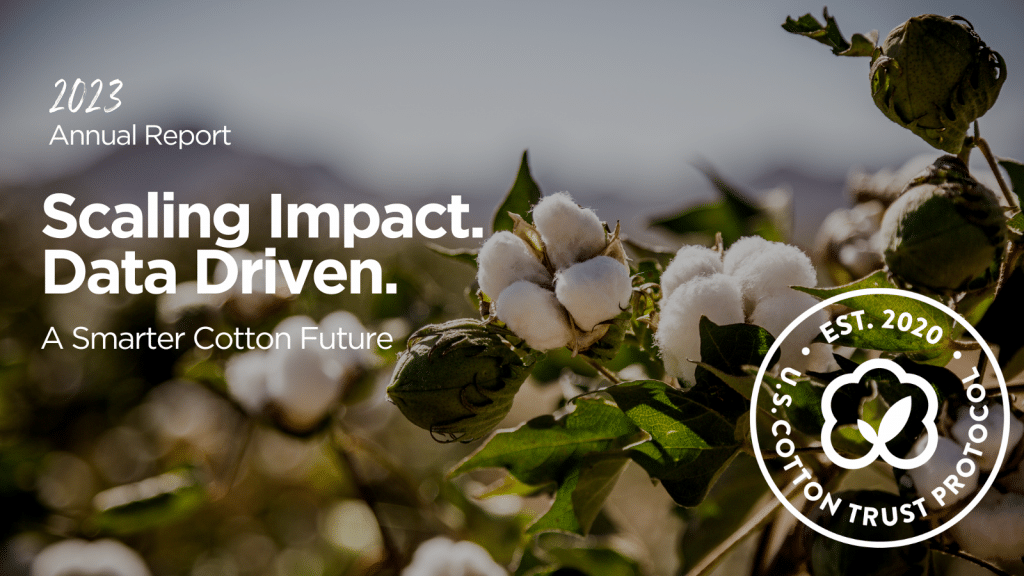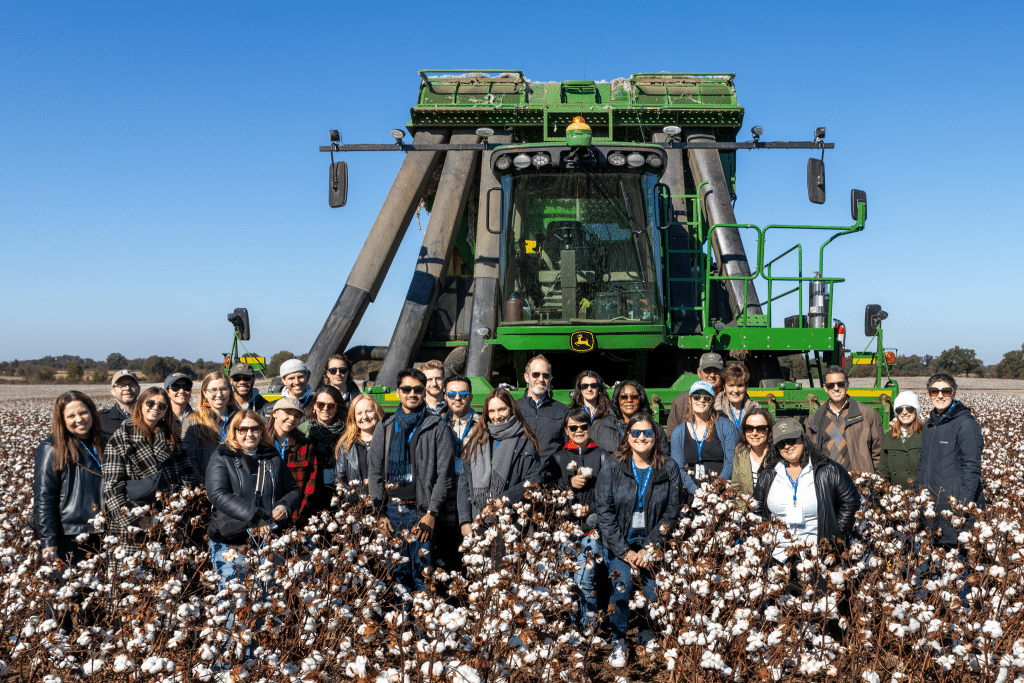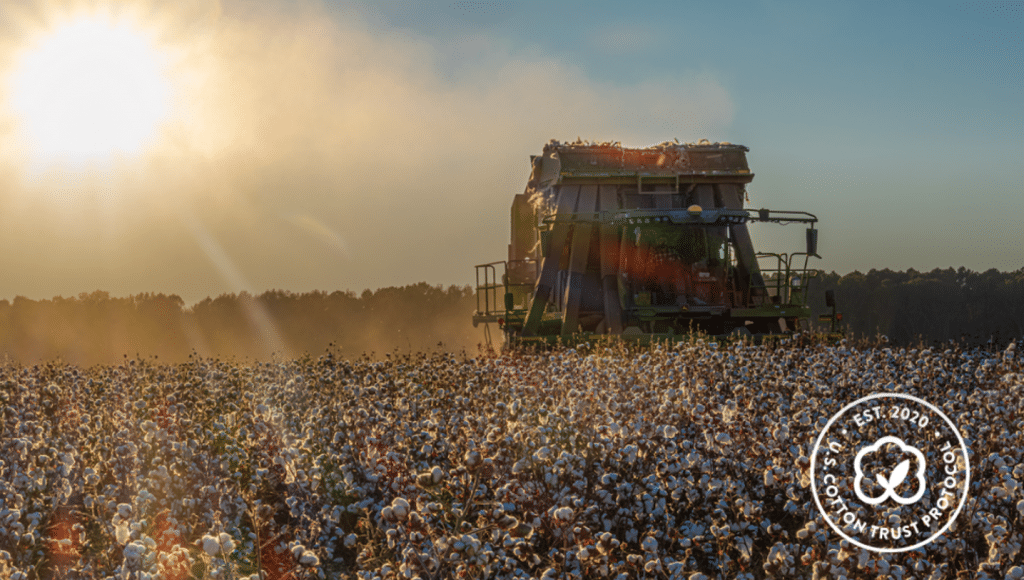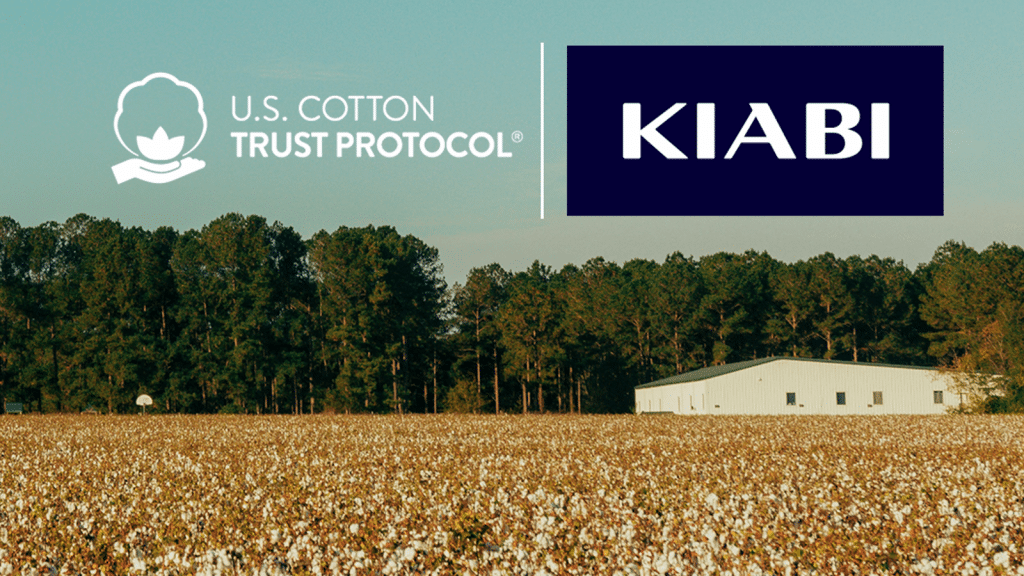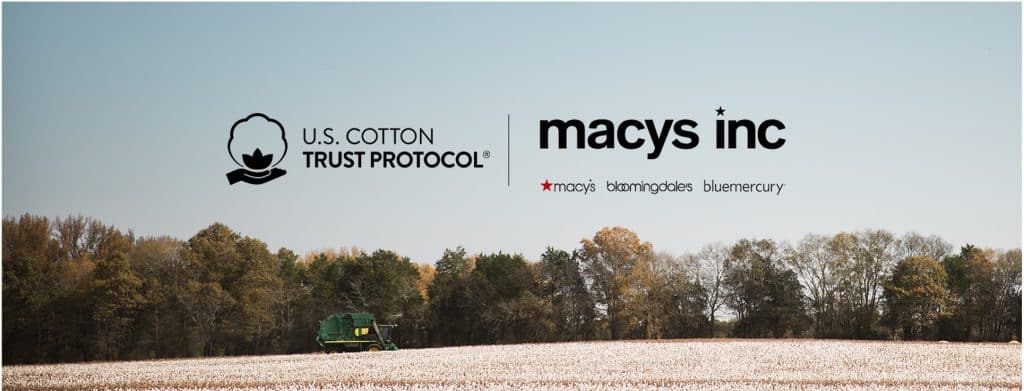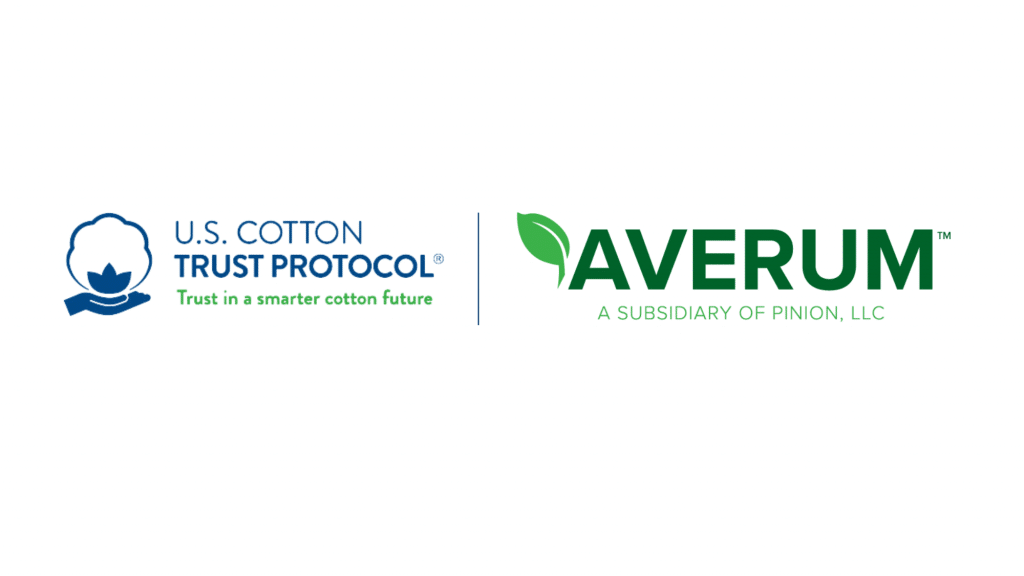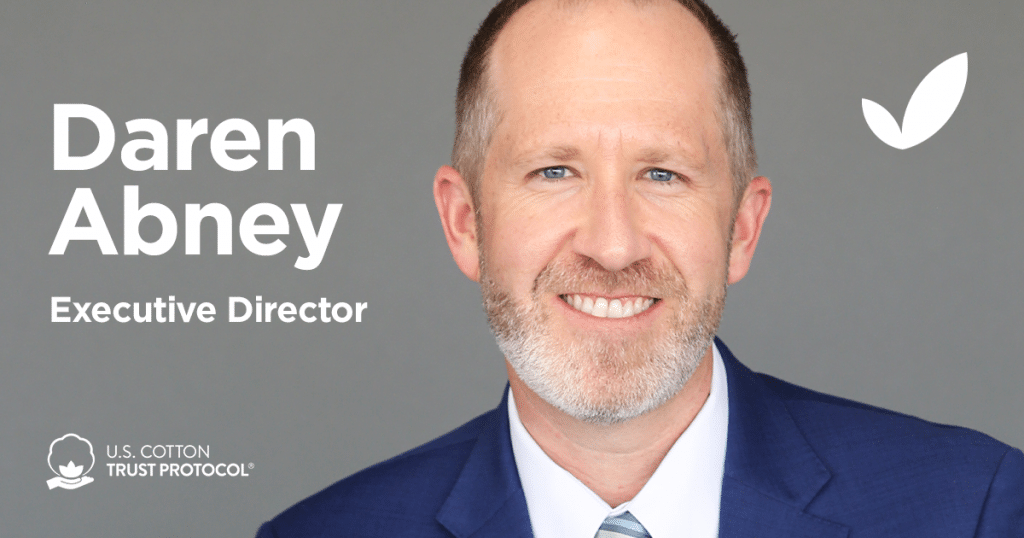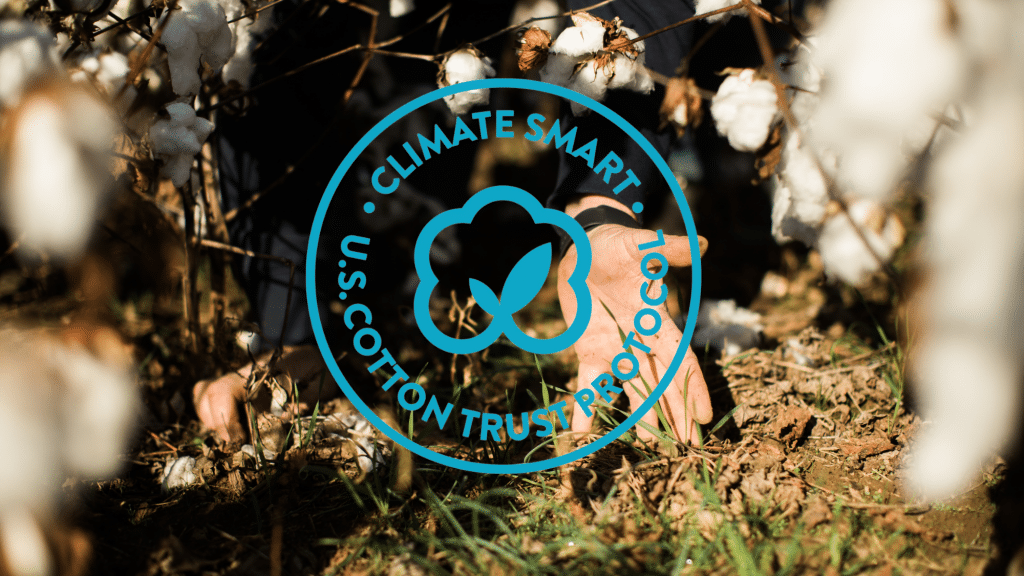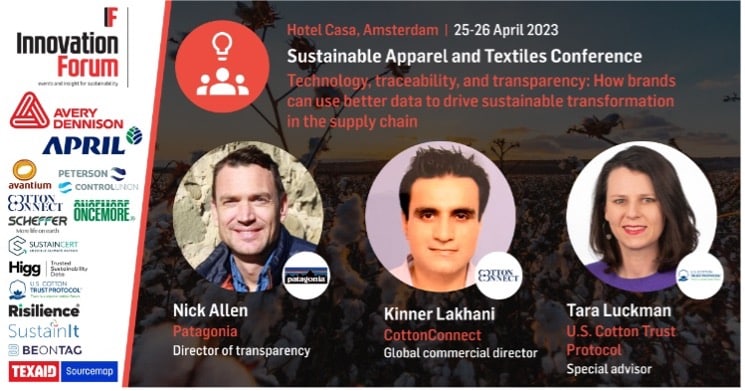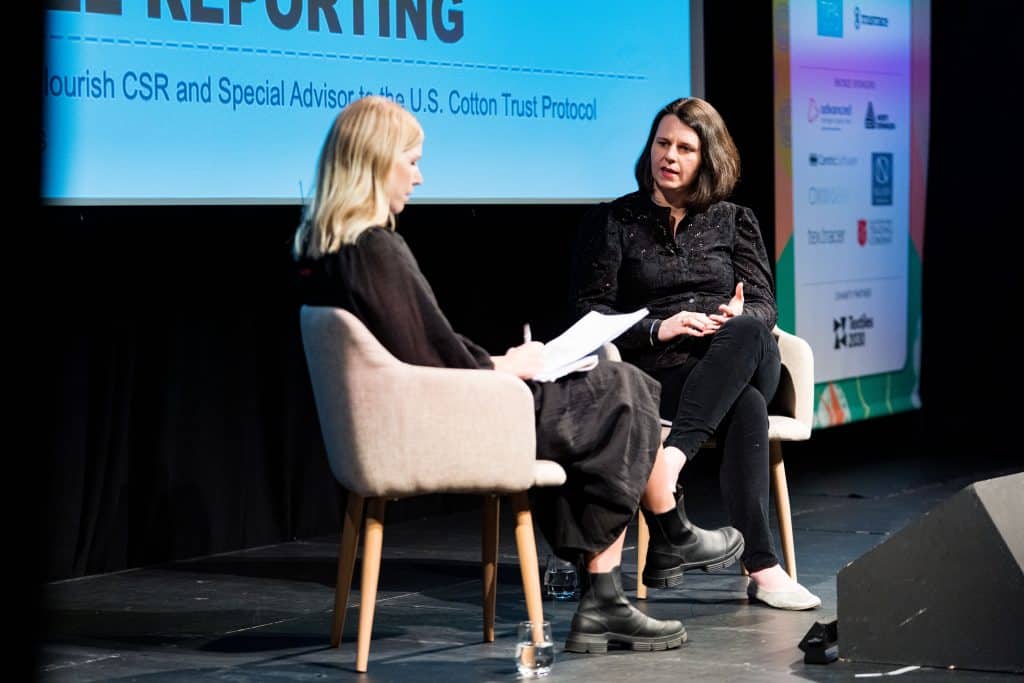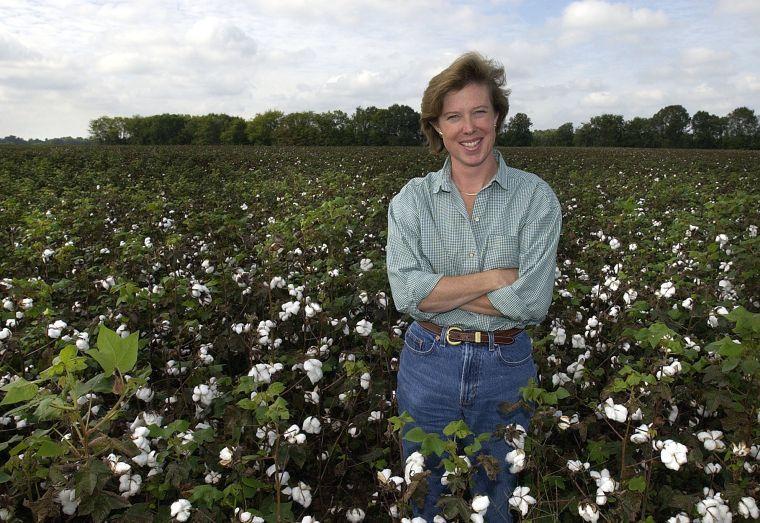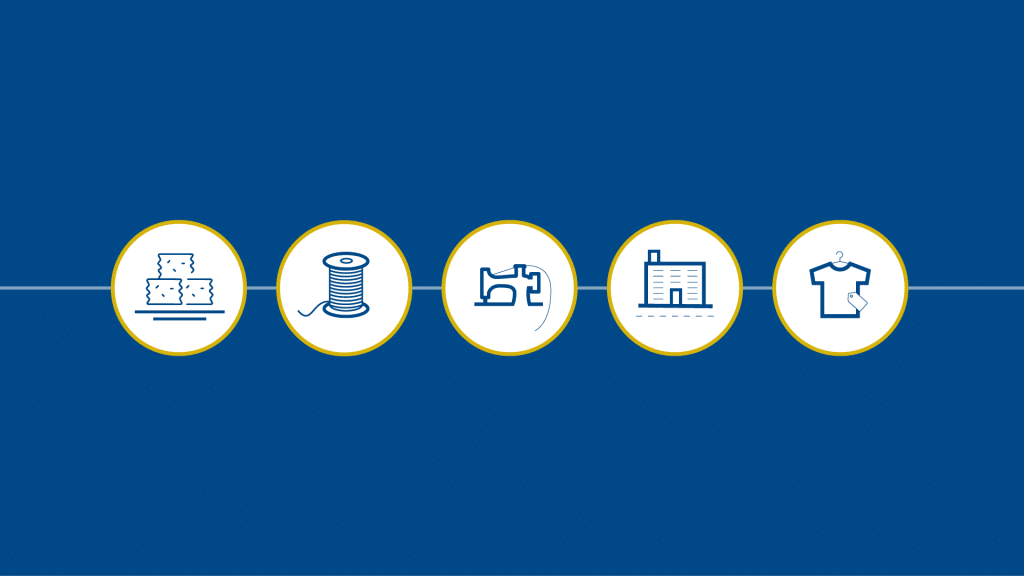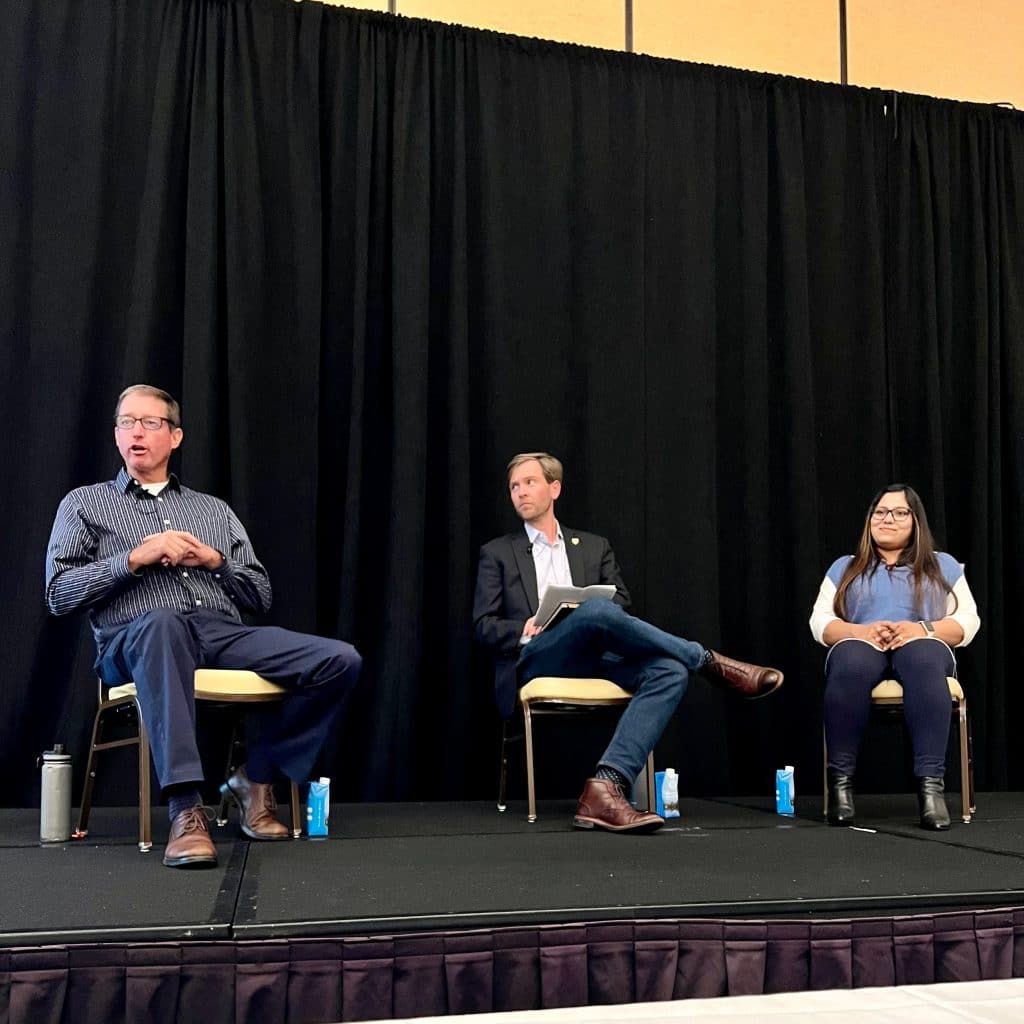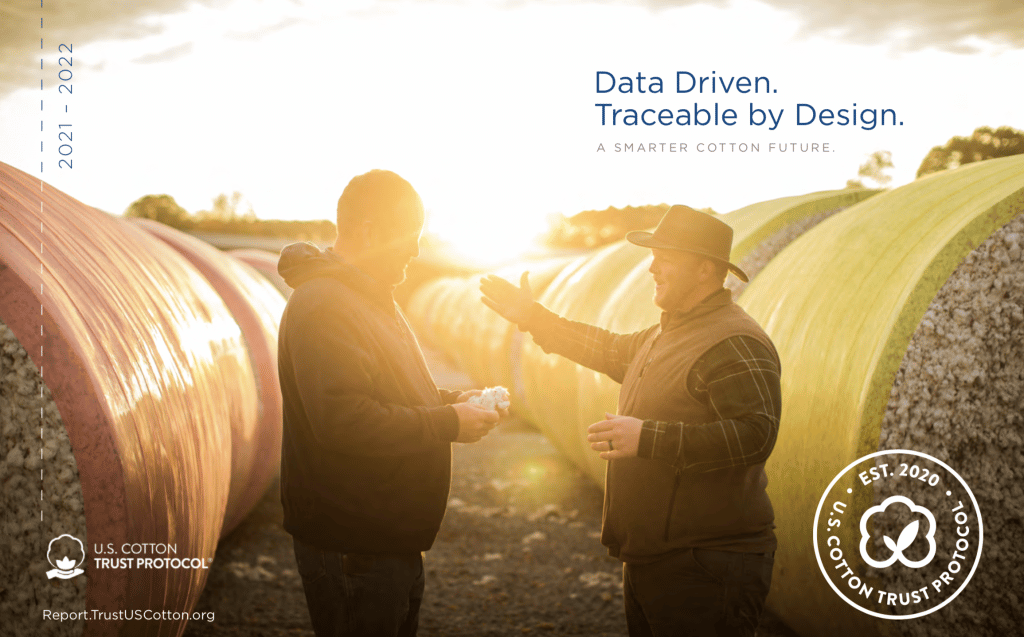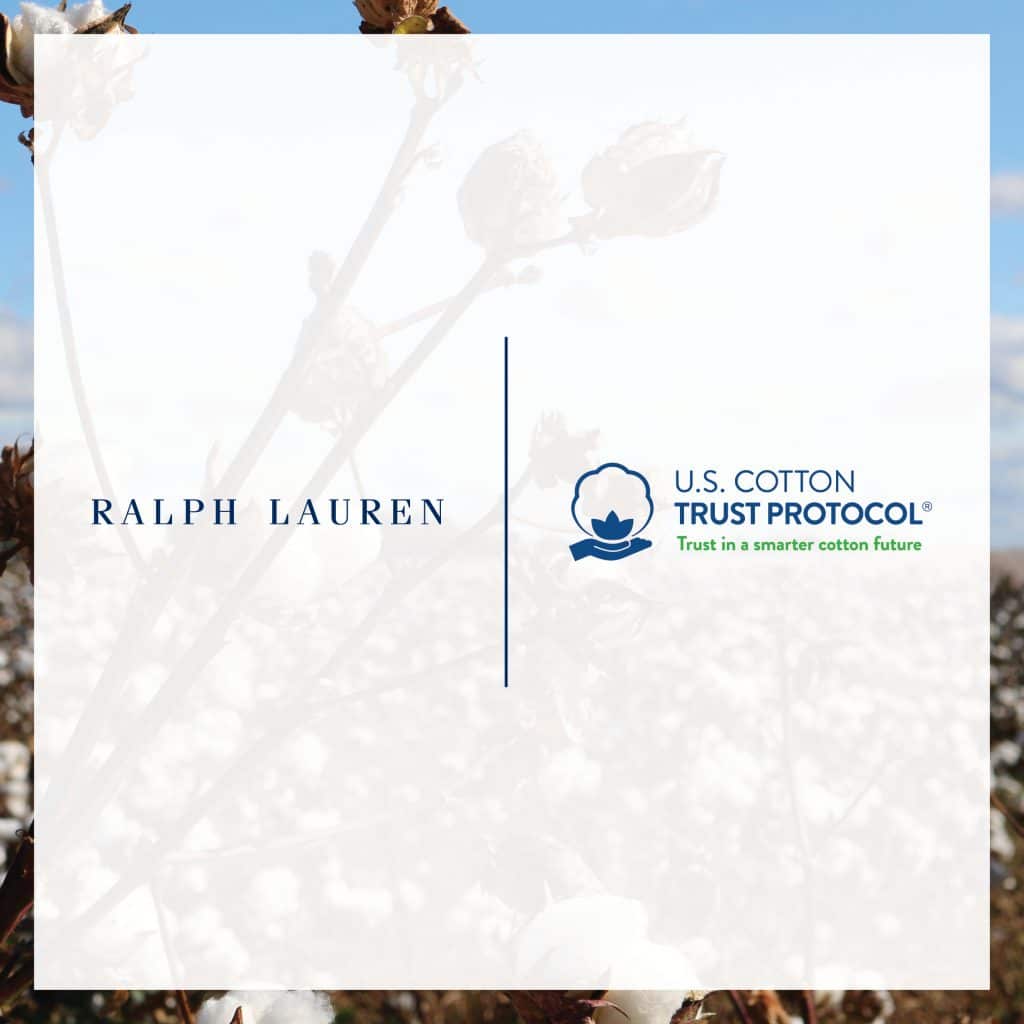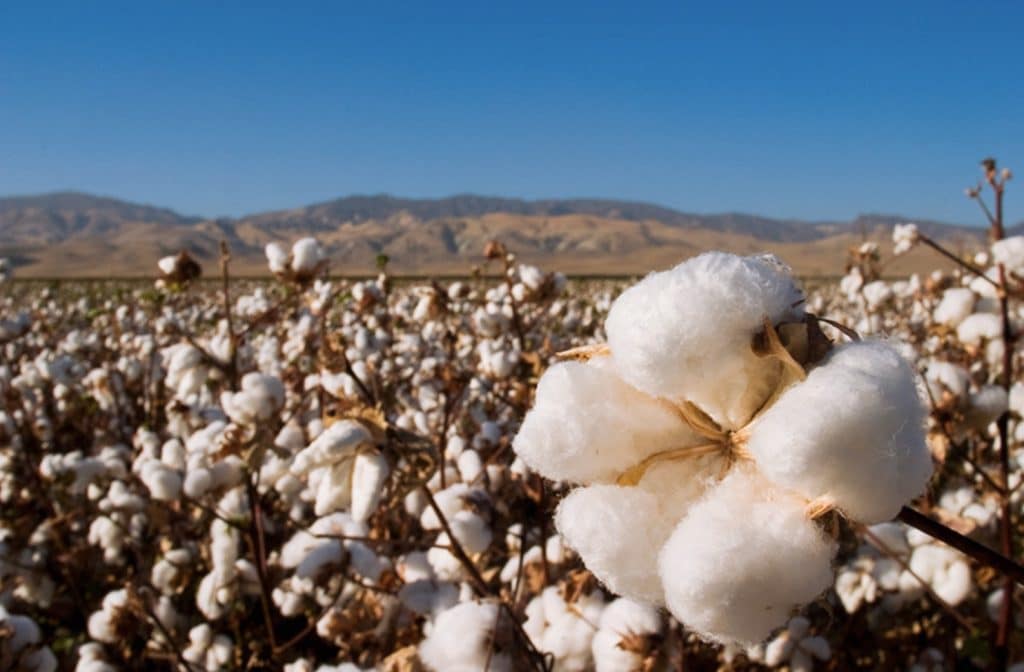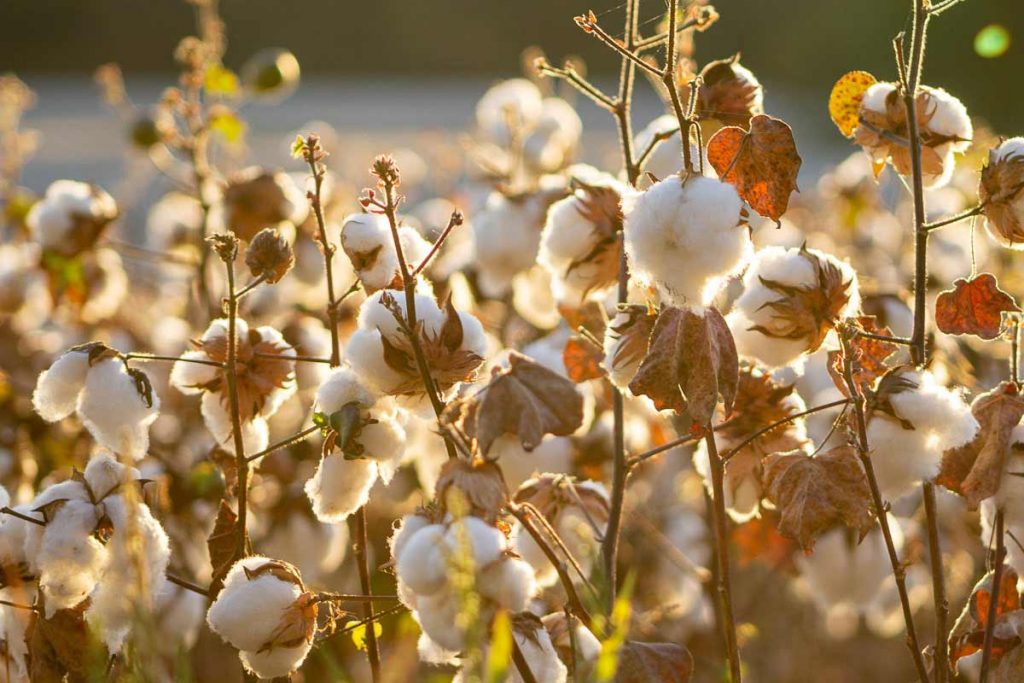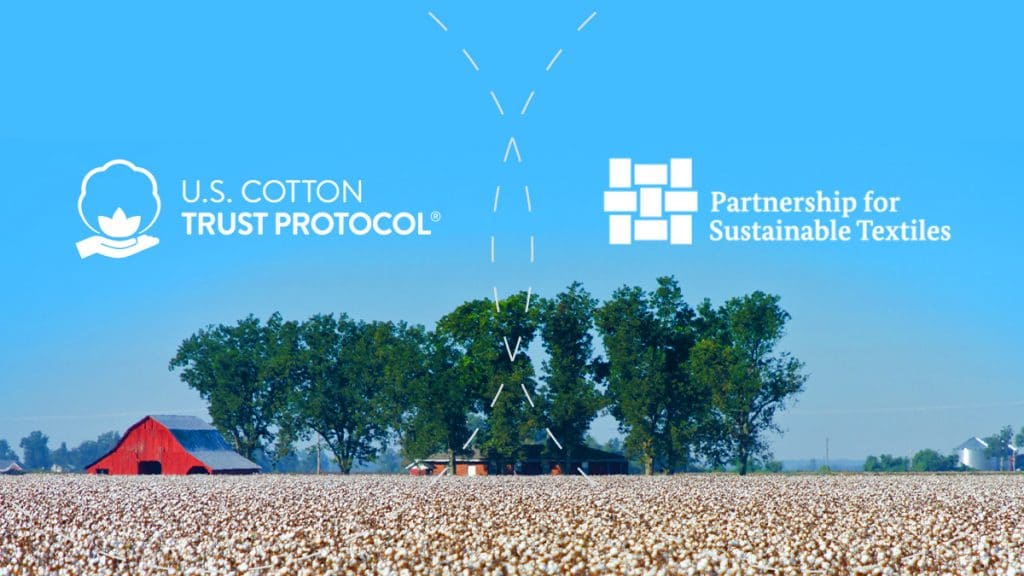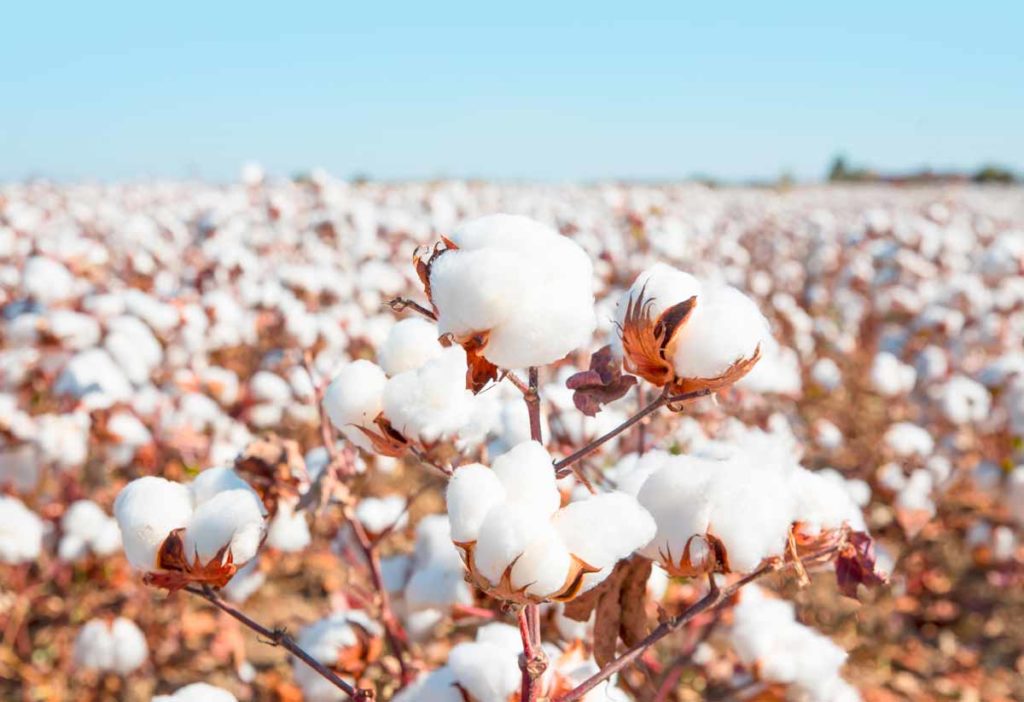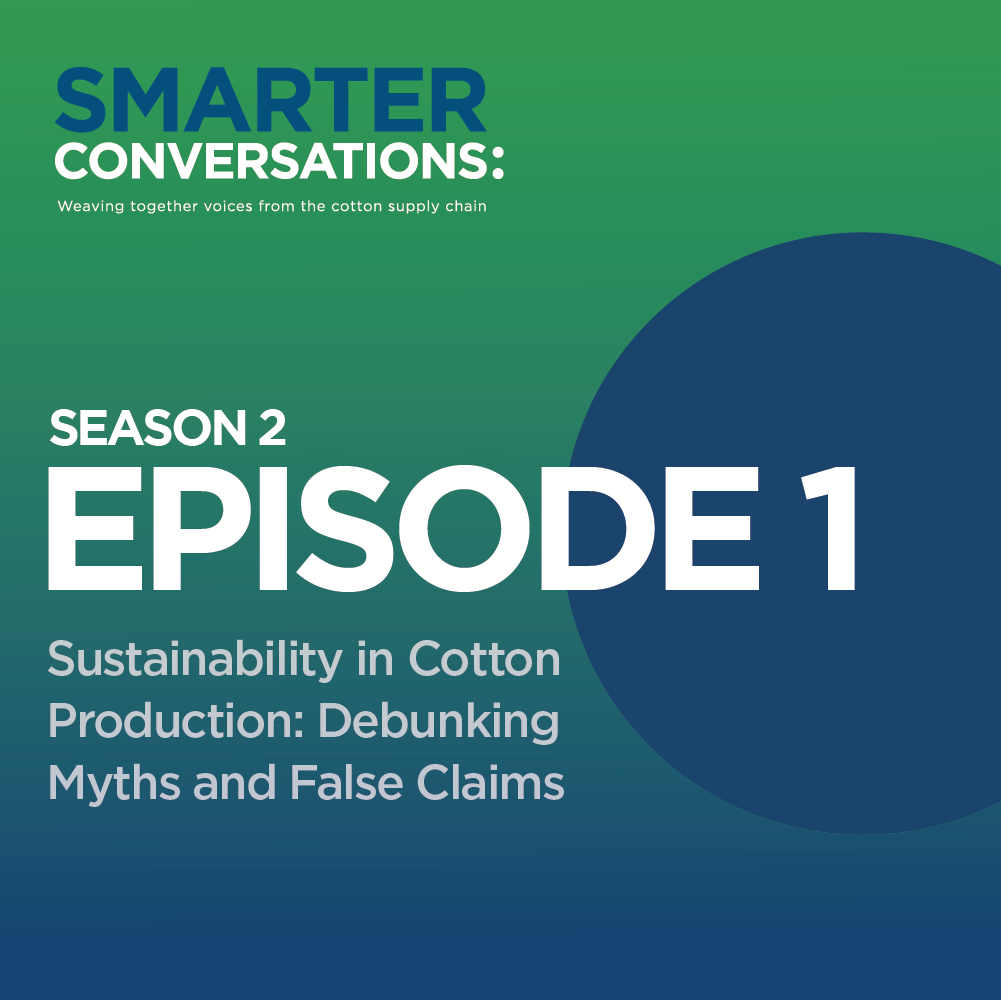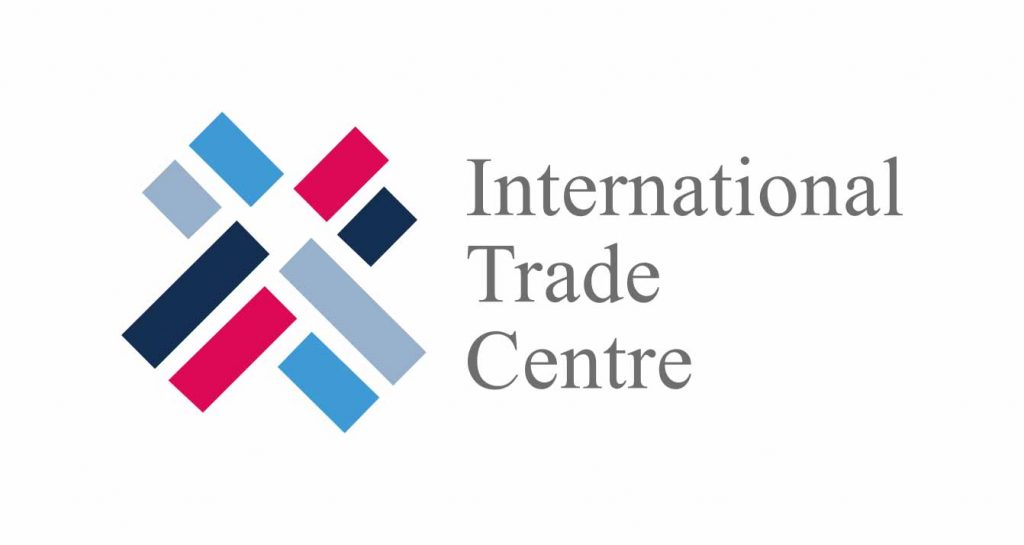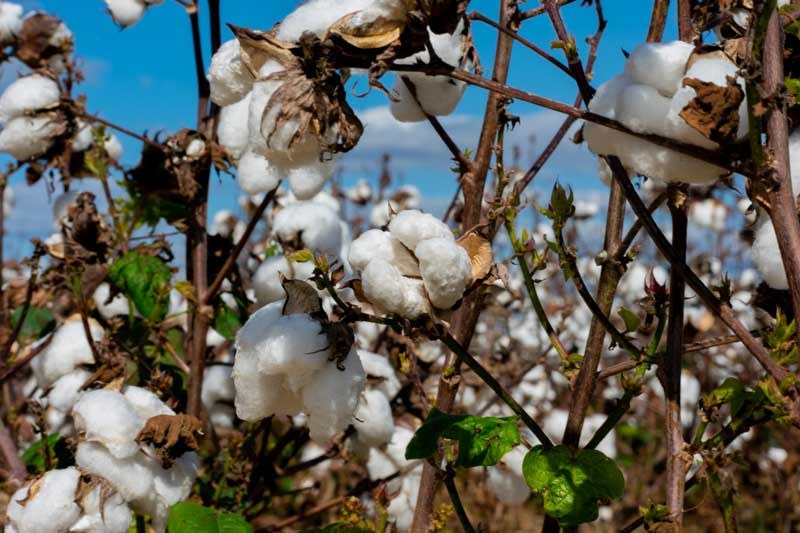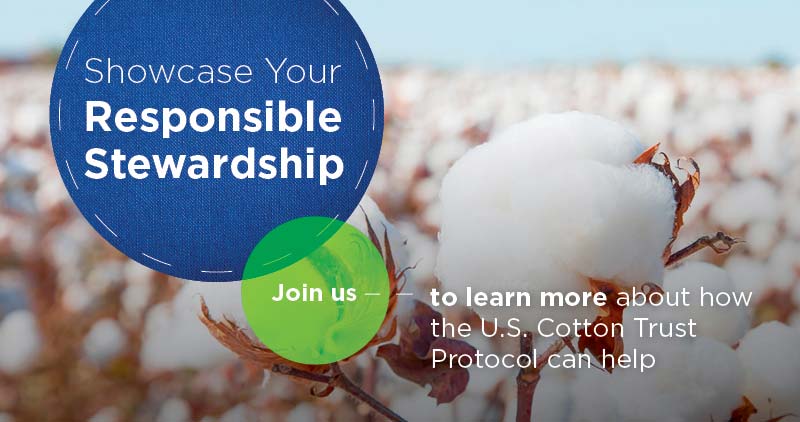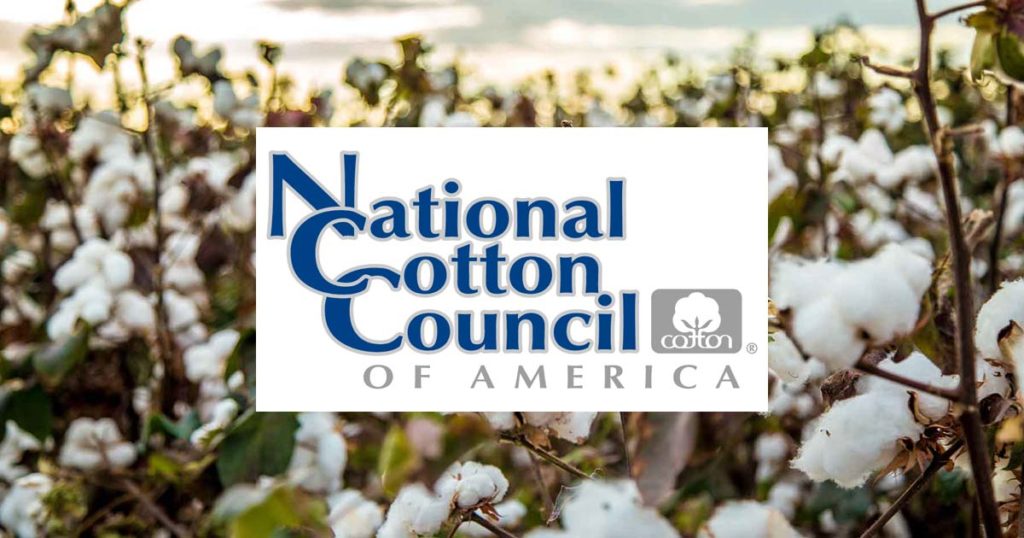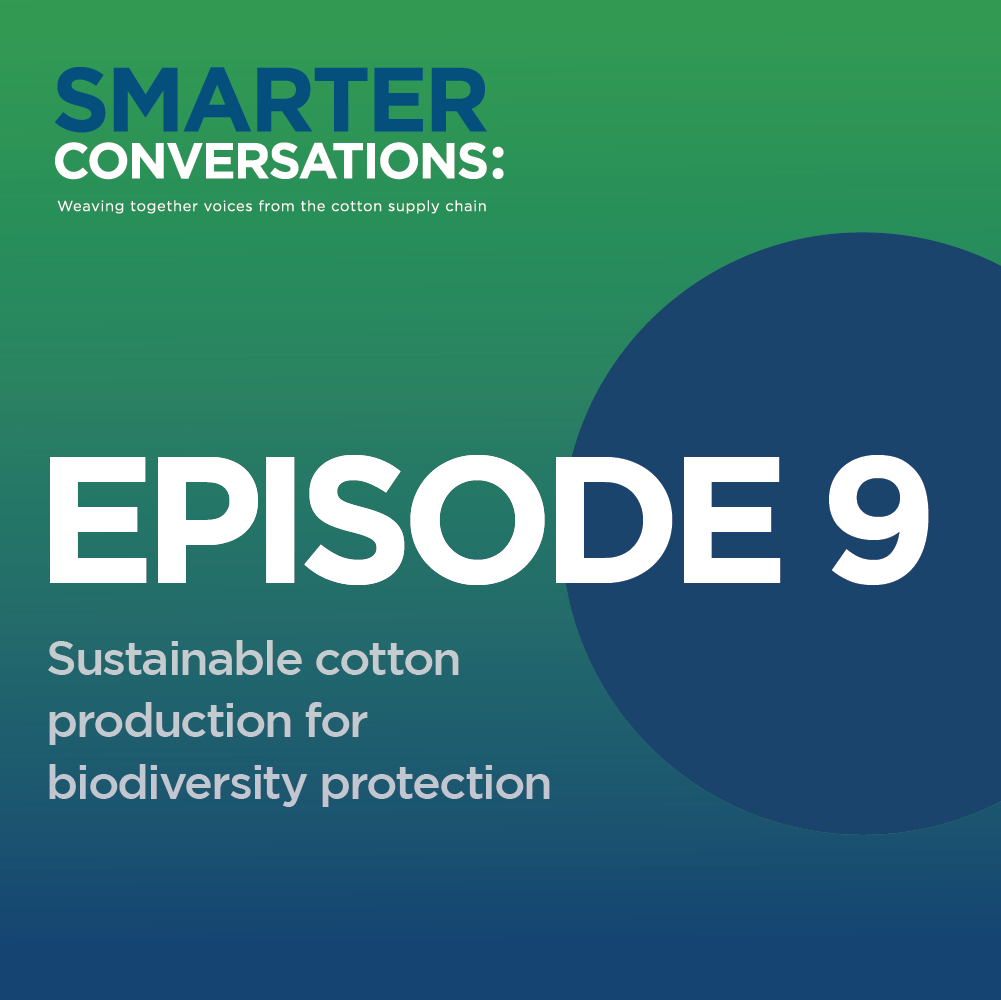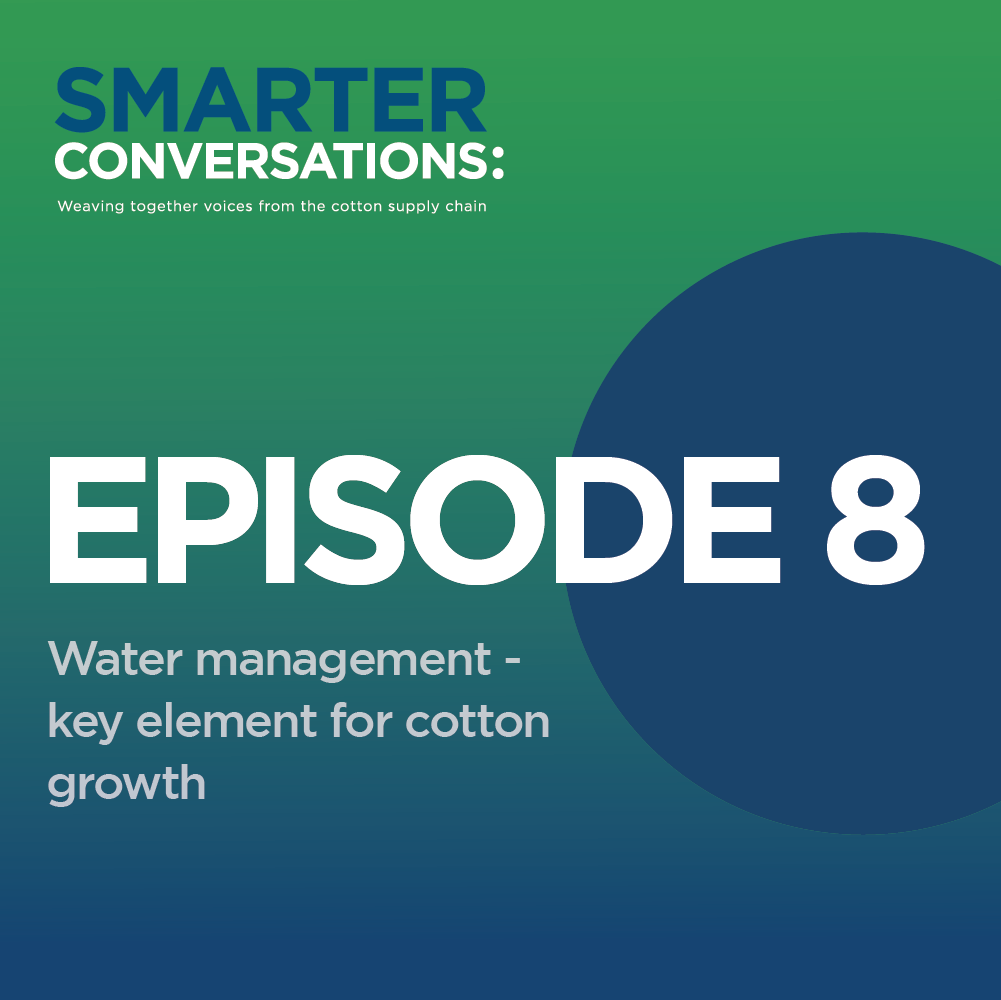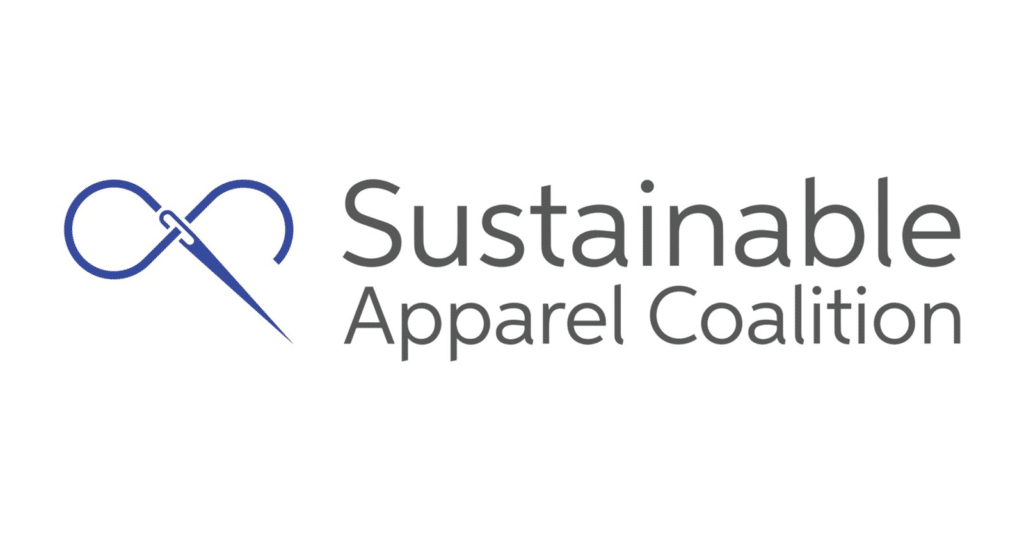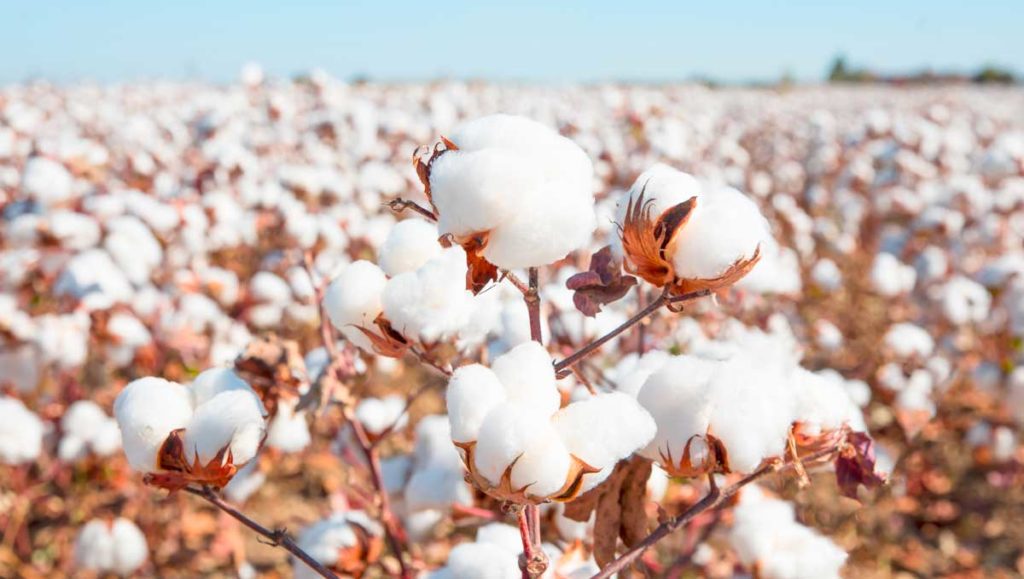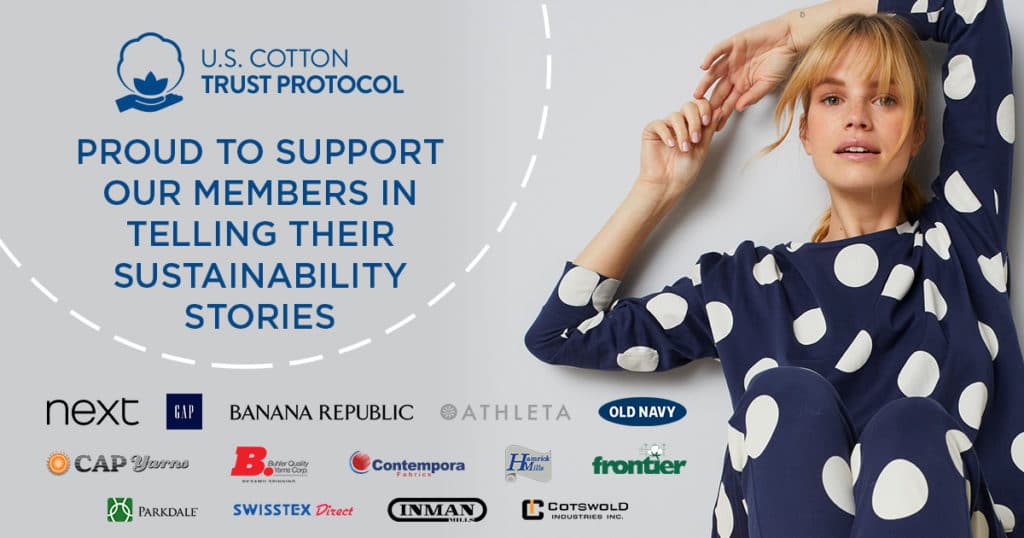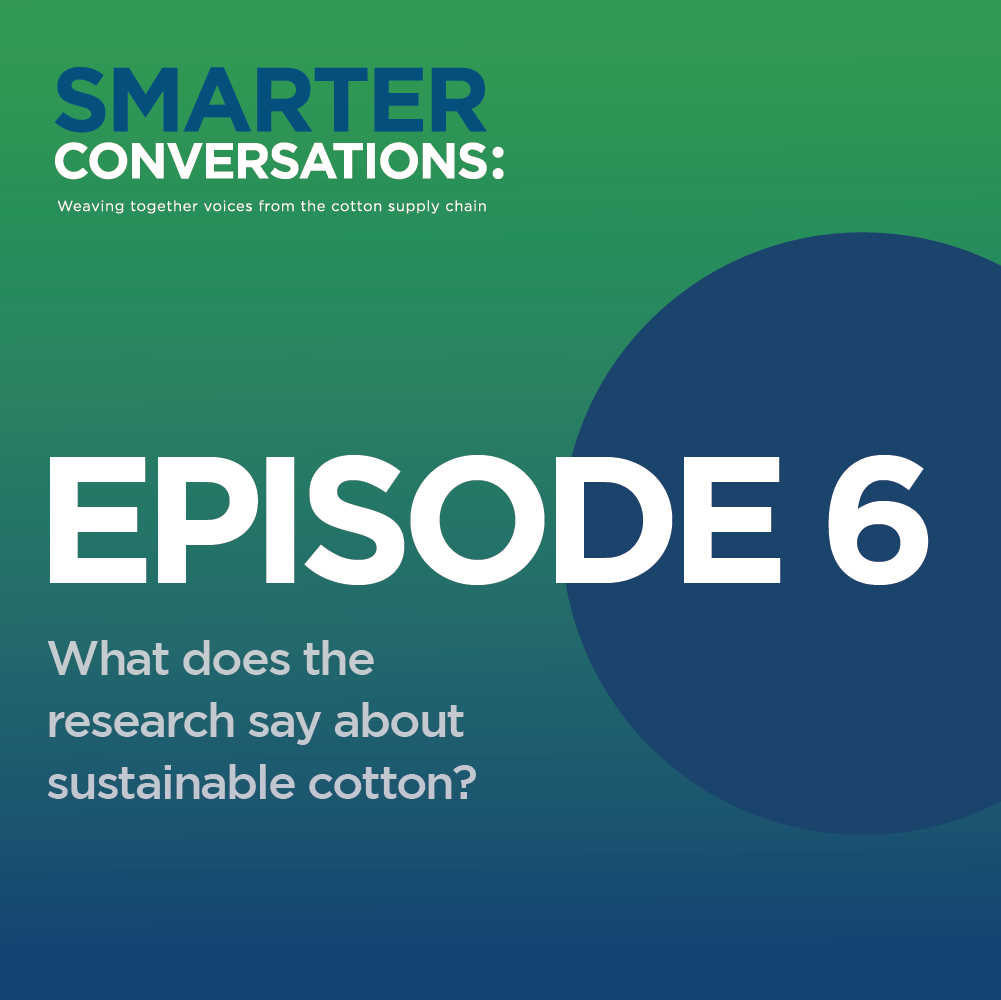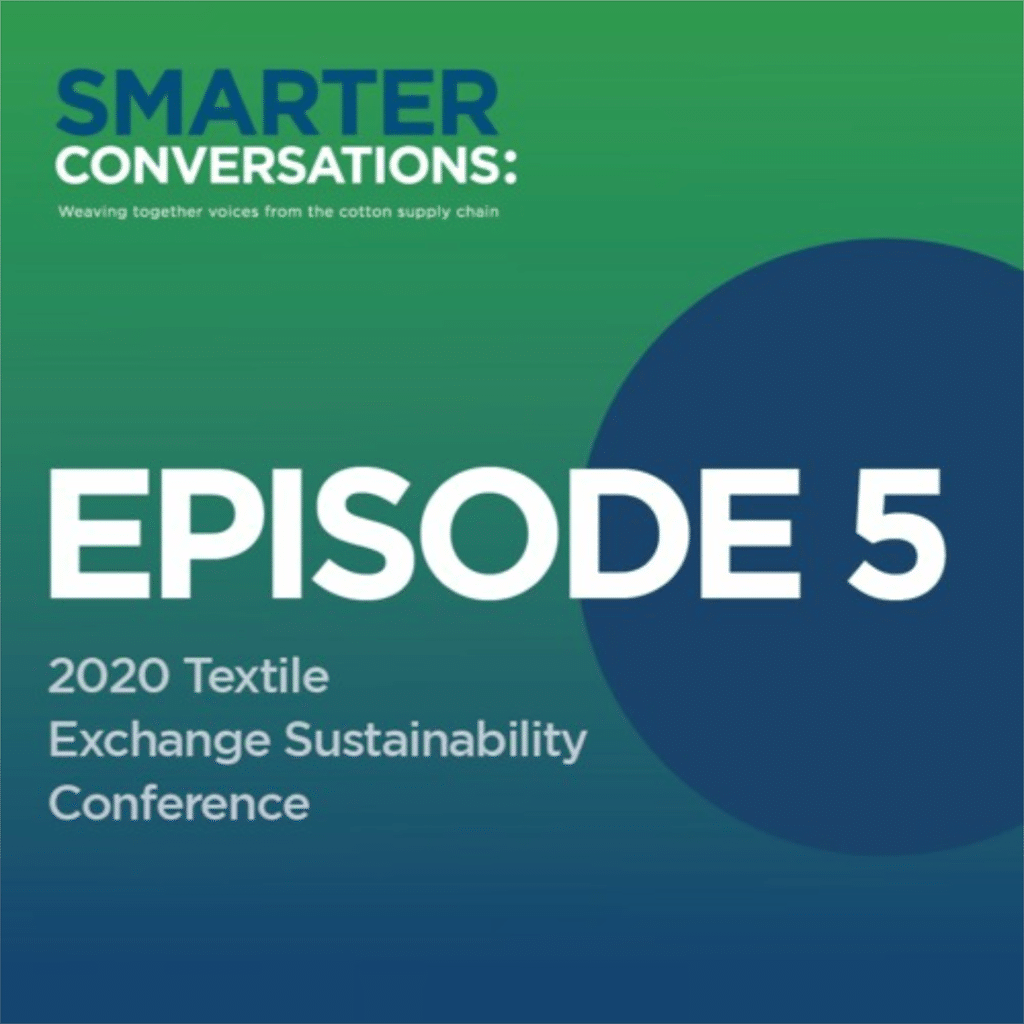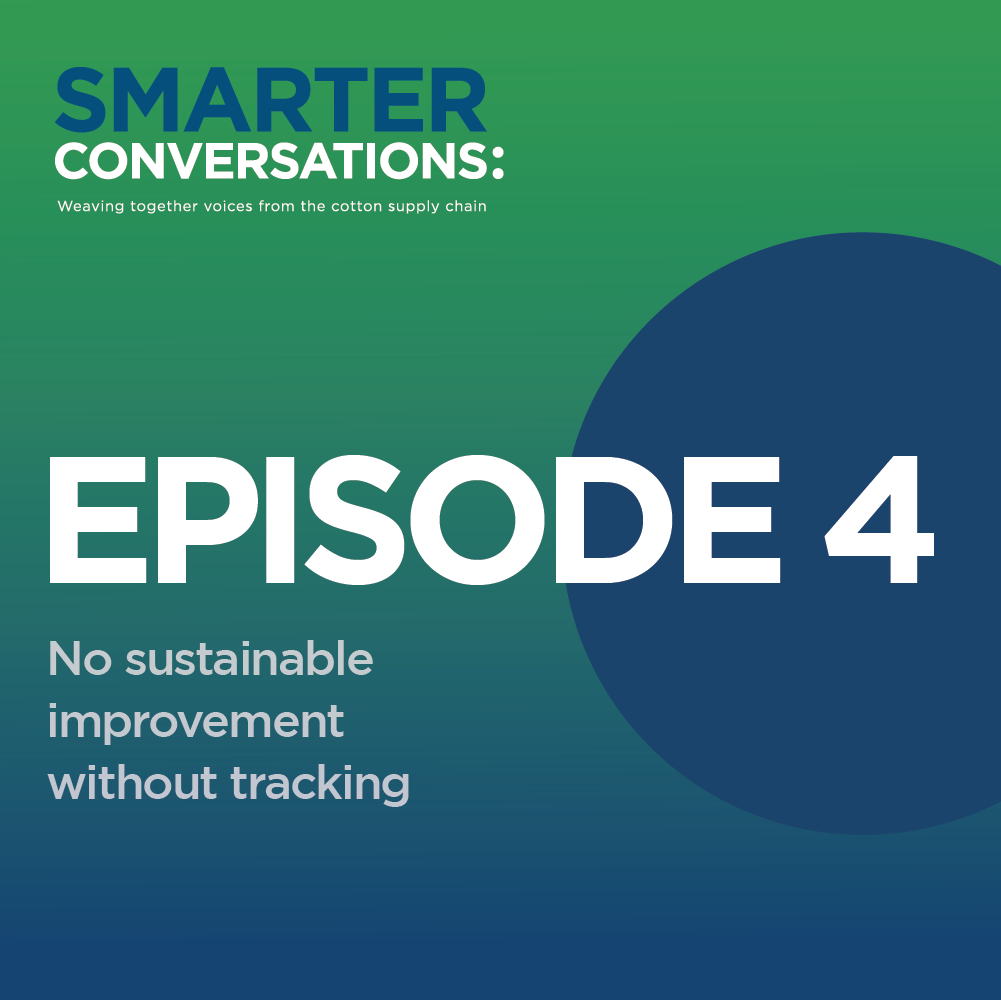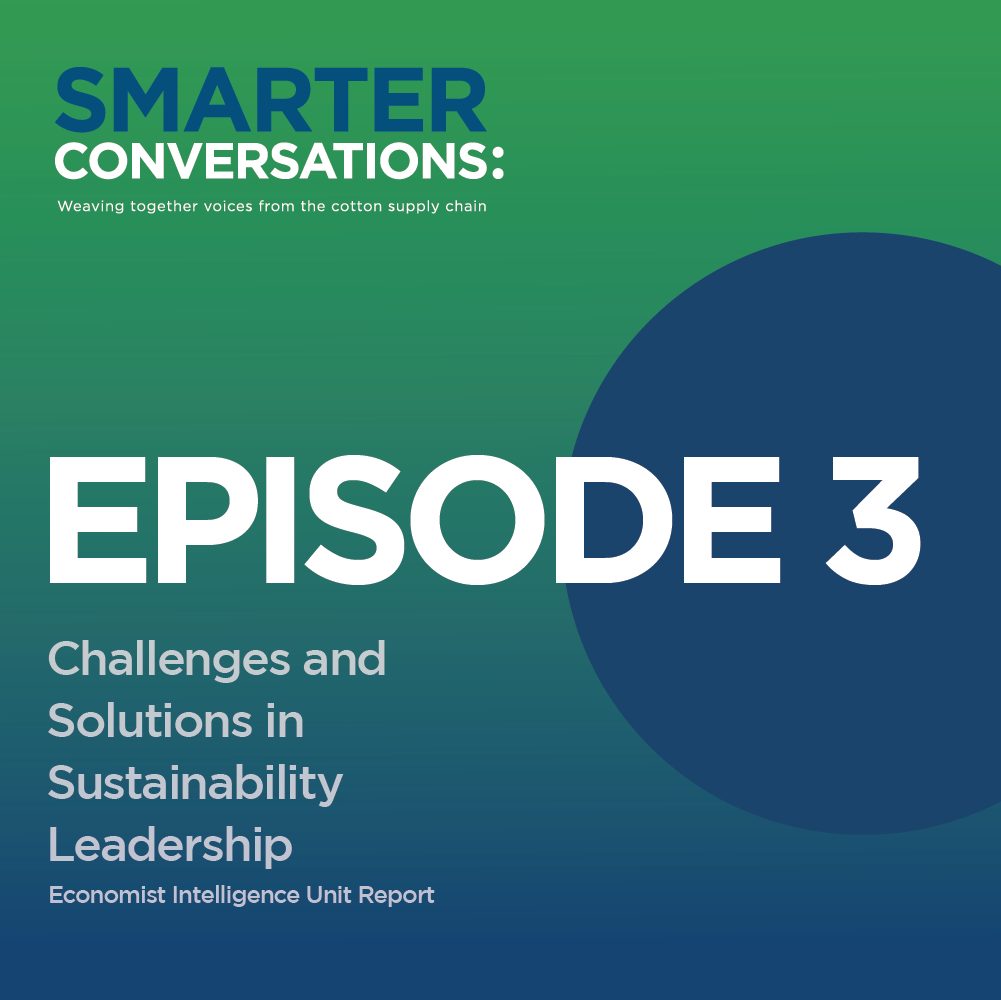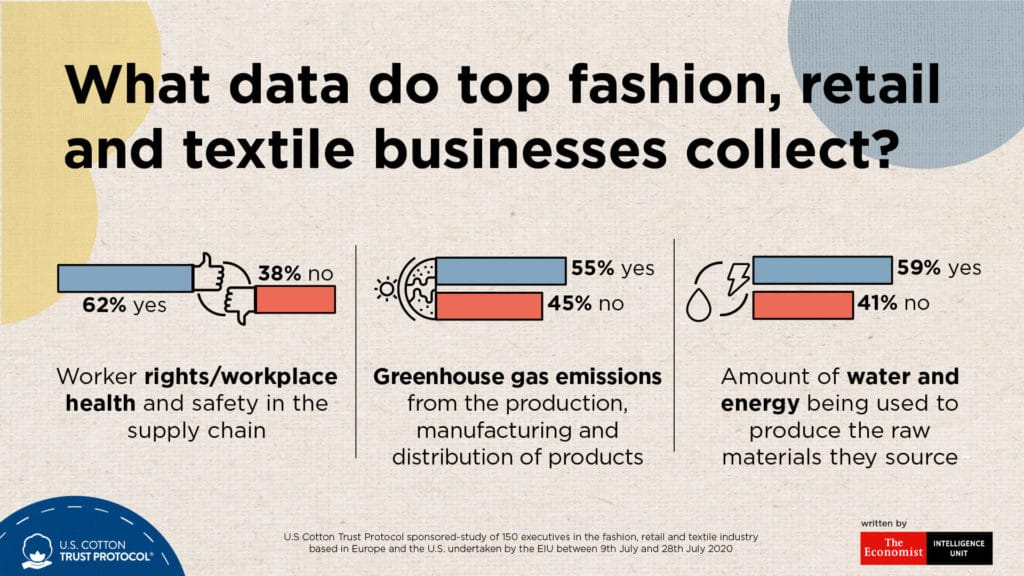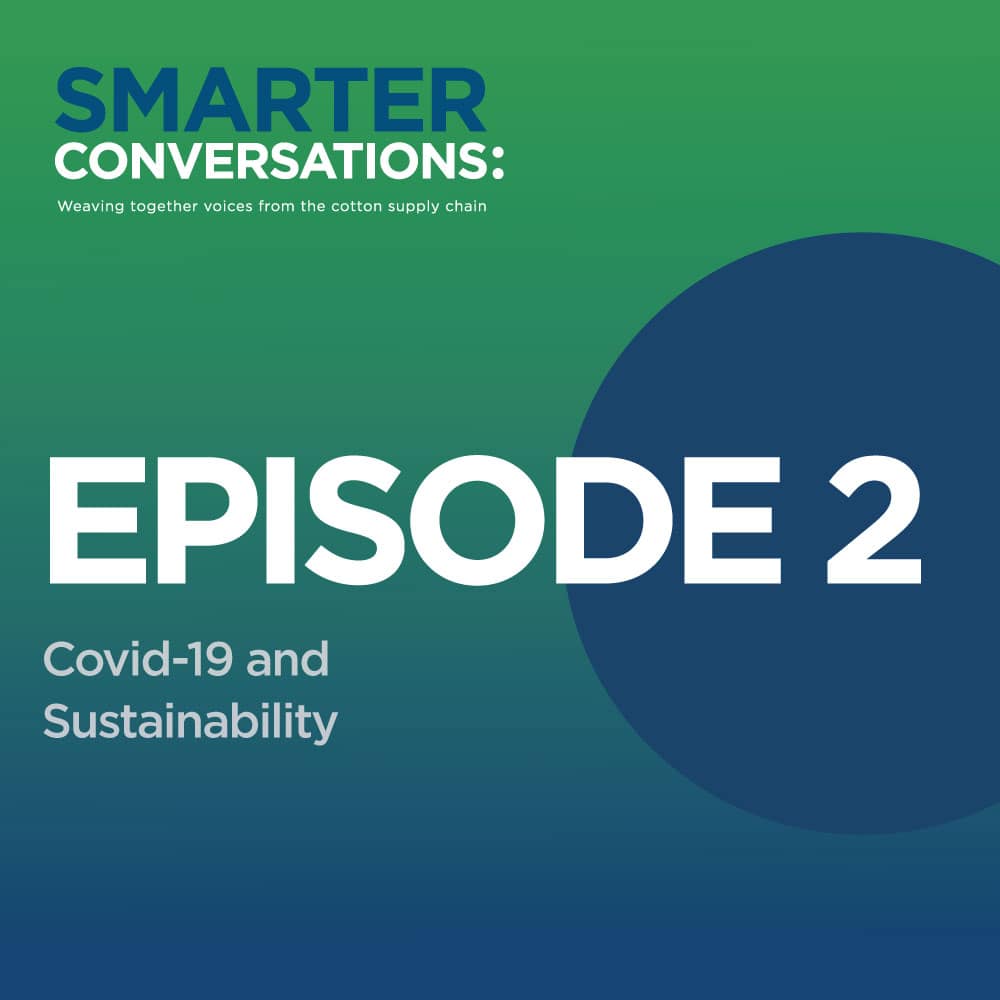While photos and articles can convey information, nothing compares to stepping off a tour bus and being surrounded by cotton fields. The sight of the natural crop is truly captivating and hearing directly from growers helps take the experience to the next level.
The Trust Protocol’s annual Farm Tour provides an immersive experience for global brands and retailers. From regenerative practices like no-till and cover crops to precision agriculture technologies, attendees witnessed firsthand how growers are committed to sustainability.
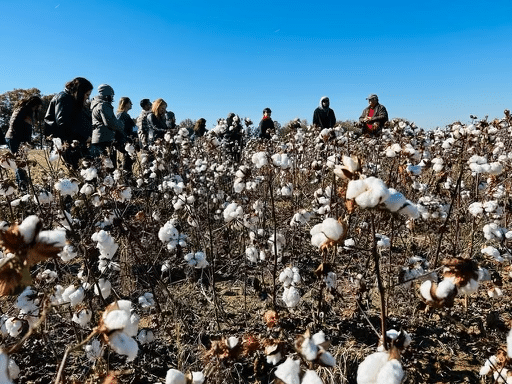
Protocol grower Sledge Taylor of Mississippi sees his farm as his canvas. He shared with attendees how feedback from the Trust Protocol allows him to constantly improve his sustainability practices and explained how the practices he uses not only protect but also further build his soils. For example, by implementing no-till practices, the residue from the previous year’s crop stay on his land and act like a shield. For Sledge, over the last five years, 95% of the acres he’s planted have been without tillage. And virtually 12 months out of the year he has something green and growing on his soils—which includes cover crops in addition to a seasonal row crop like cotton.
Attendees also visited Bob Walker’s farm in Tennessee to learn more about precision agriculture technologies, which aid his on-farm efforts to be more sustainable. He shared how they use a variety of technologies to monitor their soils and perform tissue testing, which is a diagnostic tool that further helps with monitoring and managing soil fertility. Bob also shared how they receive weekly satellite imagery allowing them to see specific areas in their fields that may need attention. He explained how satellite imagery provides color-coded maps that allow them to detect potential soil nutrient deficiencies, pest issues, or diseases that may be impacting their crop. This also allows them to address issues on a timely basis—instead of being surprised during harvest when it is potentially too late to adjust. Participants also saw a cotton picker in action, which demonstrated the important role that advanced technology plays in sustainable cotton for efficiency and productivity.
But it’s not just about the fields and the growers. Attendees also heard from sustainability experts to gain insights into best practices adopted across the Cotton Belt. They further witnessed the journey of cotton from harvest to warehouse and saw the renowned work conducted at the USDA cotton classing office.
The impact of the Farm Tour is clear: “Seeing cotton growers proudly embrace data and modern tools to drive verifiable regenerative practices to ensure their farm is better for the next generation is a lesson everyone should learn from.”
Guests attending the tour ranged from director of sustainability to materials director, lead materials developer for global apparel, and senior manager of fabric and sustainability.

